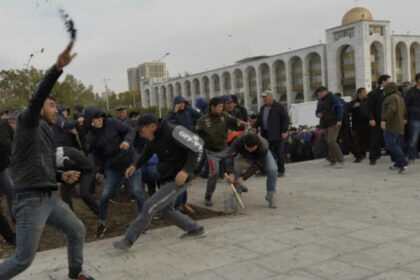New Espionage Law Follows Ceasefire
Tehran, Iran – After a 12-day conflict with Israel and the United States, Iran moved swiftly to tighten its national security laws. The government is now targeting espionage, collaboration with hostile states, and online dissent.
The Iranian parliament has advanced a bill that introduces harsher penalties—including the death penalty—for those cooperating with foreign powers.
Major Policy Shift in National Security
On Monday, Iran’s parliament passed legislation that aims to “intensify punishment for espionage and collaboration with the Zionist regime [Israel] and other hostile nations.” President Masoud Pezeshkian described this move as part of a “historic victory” in a televised address on Tuesday.
Under the proposed law, anyone who engages in spying, aids foreign intelligence, or accepts payment—including cryptocurrency—for acts against Iran may face charges of “corruption on Earth,” a capital offense.
Lawmakers Push for Tougher Enforcement
Senior lawmaker Alireza Salimi stated that the bill empowers security forces to respond more decisively to national threats. Judiciary spokesperson Asghar Jahangir added that existing espionage laws are outdated and too vague for modern security needs.
The new bill also targets those involved in smuggling weapons or contributing to terror operations within the country.
Surge in Arrests and Executions Since the War
Since the conflict began on June 13, Iran has reported a sharp increase in arrests and executions. Security forces have intensified operations across multiple provinces.
On Wednesday, officials in Urmia (West Azerbaijan province) executed three Iranian citizens. Authorities charged them with moharebeh (“waging war against God”) and corruption on Earth for smuggling equipment allegedly used in an assassination plot.
Though the judiciary did not name the executed individuals, the case appears linked to the 2020 assassination of nuclear scientist Mohsen Fakhrizadeh, which Iran attributes to Israeli intelligence.
Broader Campaign Against Espionage
These executions are part of a broader national crackdown. Three additional individuals have been executed in unrelated espionage cases involving Israel. Since the conflict began, authorities have arrested more than 700 people, with daily reports of new detentions.
Some of the most significant arrest figures include:
- 115 people in Kermanshah (west)
- 53 in Fars province (south)
- 36 in Gilan (north)
- 23 indictments in Khuzestan (southwest) for sabotage and anti-state propaganda
Officials claim these actions are essential to protect the Islamic Republic. However, human rights organizations argue the crackdown may be aimed at suppressing dissent rather than genuine threats.
Amnesty International Raises Concerns
Groups like Amnesty International have condemned Iran’s actions. They warn that the country uses the death penalty to suppress opposition and maintain control. A spokesperson stated that many defendants received unfair trials and now face execution without proper legal protections.
Iran Targets Digital Dissent
Iran is also increasing surveillance of online activity. Many citizens have reported receiving warning messages from the judiciary’s crime prevention unit. These messages label any online engagement with Israeli platforms as criminal behavior.
Authorities also cautioned that showing support for U.S. or Israeli military actions—even online—may lead to arrest and prosecution.






